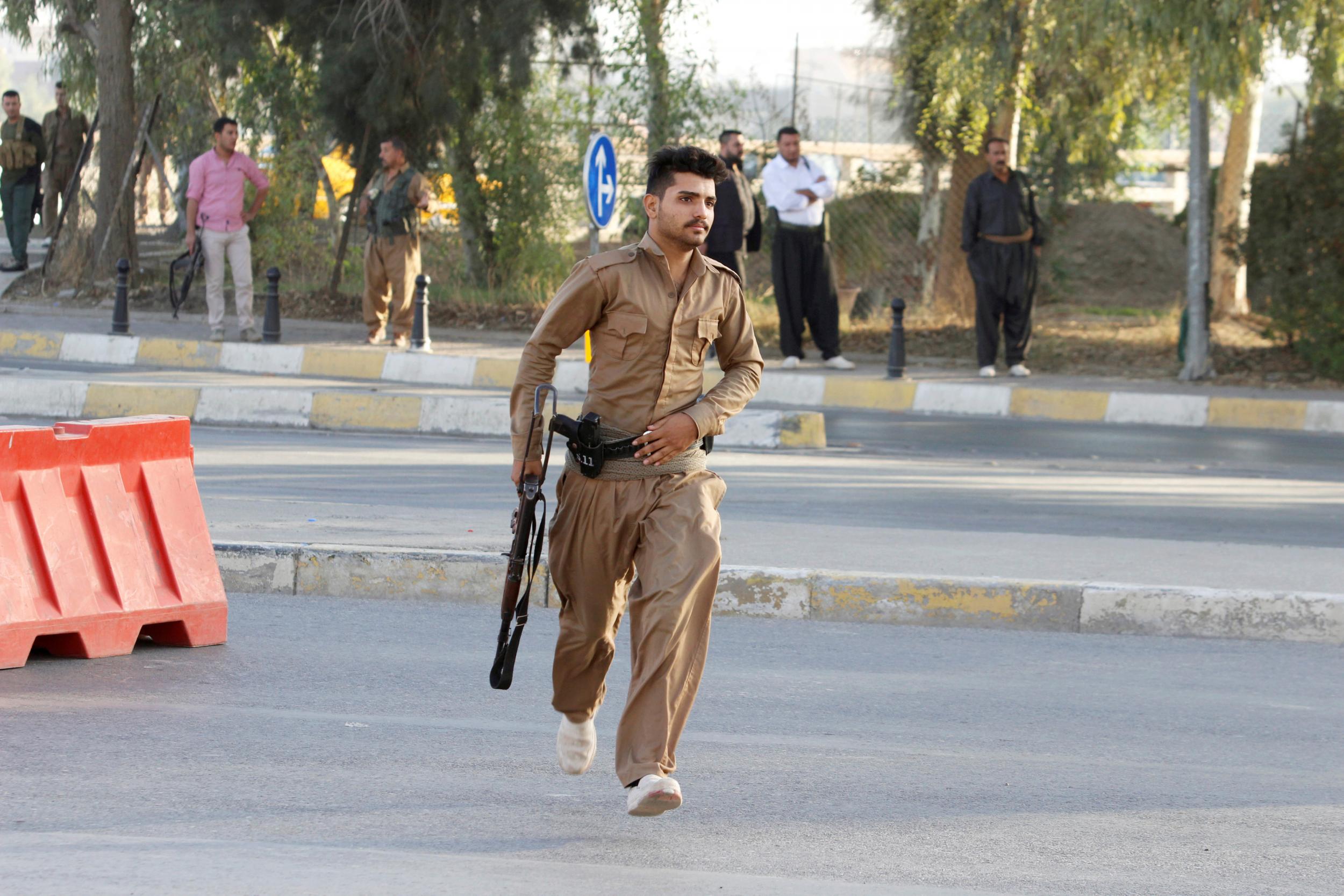Isis launches 'distraction' attack on Iraqi city of Kirkuk as battle for Mosul intensifies
At least 11 dead as militant sleeper cells launch overnight attack on government compound and power plant in northern city

Your support helps us to tell the story
From reproductive rights to climate change to Big Tech, The Independent is on the ground when the story is developing. Whether it's investigating the financials of Elon Musk's pro-Trump PAC or producing our latest documentary, 'The A Word', which shines a light on the American women fighting for reproductive rights, we know how important it is to parse out the facts from the messaging.
At such a critical moment in US history, we need reporters on the ground. Your donation allows us to keep sending journalists to speak to both sides of the story.
The Independent is trusted by Americans across the entire political spectrum. And unlike many other quality news outlets, we choose not to lock Americans out of our reporting and analysis with paywalls. We believe quality journalism should be available to everyone, paid for by those who can afford it.
Your support makes all the difference.Isis has attacked the Iraqi city of KIrkuk in an effort to draw attention away from the US-backed coalition force's new attempt to free Mosul from the group's control.
Assault rifles and explosives were used in the surprise offensive in the early hours of Friday when fighters stormed a power plant north of the city, shooting 10 people and detonating two suicide bombs when police arrived.
In Kirkuk itself, local Kurdish television broadcast live footage in which multiple explosions and heavy gunfire could be heard in what is believed to be an attack on a government compound in the city centre.
There are conflicting reports as to whether fighters managed to take control of any buildings. Head of police Sarhad Quadir said that Isis fighters gained control of a disused police station for a few hours after detonating three car bombs, but were driven out by an elite Iraqi counter terrorism unit.
Later on Friday, local Rudaw News said that all but two militants had been killed, and were engaged in a shootout with Kurdish peshmerga forces. Rudaw also published photos which it says showed armed civilians who had joined the hunt for remaining fighters.
There has been no confirmation of either civilian or Kurdish troop fatalities in the Kirkuk assault. A senior peshmerga commander said that he believed that Isis maintains sleeper cells in the town and surrounding villages, and posed as people displaced by the fighting in Mosul in order to carry out Friday’s attack.
“Many of [the displaced civilians], I'm sure they are working with Isis,” Kerkuki said. “We arrested one recently and he confessed [he was part of a sleeper cell].”
Kirkuk's governor Najmaldin Karim also said that fighters had managed to infiltrate the city among the waves of people from the countryside who have fled to the urban area. "It was expected that Isis sleeper cells would make a move one day in Kirkuk, now that the Mosul offensive has started and they want to boost their own morale this way,” he said.
Kirkuk is 100 miles away from Mosul and 180 miles north of Baghdad. The town has been attacked by Isis on several occasions since the group overran up to a third of Iraq in a blitz across the country in 2014.
Iraqi Prime Minister Haider al-Abadi announced that a long-anticipated offensive to retake Mosul, Iraq’s second largest city, had begun on Monday.
Fighting has been intense, with allied Iraqi army, Kurdish peshmerga forces and Iraq’s elite Counter Terrorism Service making gains, retaking villages in the Nineveh plain to the north, east and south of the city. On Thursday, the US-backed forces retook the town of Bartella to the east, just nine miles away from the city itself.
Residents in the city reported on Thursday that Isis was confiscating mobile phones and SIM cards and food prices were rocketing, as the civilian population and around 4,000 fighters tense for battle.
The UN and aid agencies are also braced for what is likely to be a huge humanitarian crisis when hostilities approach more built-up areas. Around 6,000 people have been displaced by the recent fighting so far, the UN said, but up to 700,000 people could flee for fear of being caught in crossfire.
Join our commenting forum
Join thought-provoking conversations, follow other Independent readers and see their replies
Comments